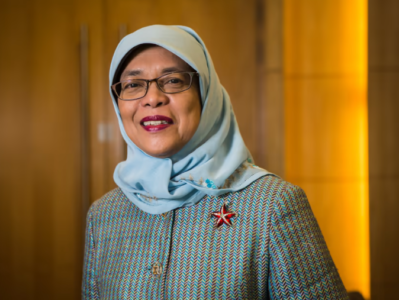Outgoing President emphasizes the importance of the 2017 reserved election in fostering racial harmony in Singapore.
SINGAPORE: President Halimah Yacob, nearing the end of her six-year term, reaffirmed her belief that the controversial reserved election in 2017 was a pivotal step in preserving Singapore’s multicultural identity. The election, which was reserved for the Malay community, marked a significant moment in the nation’s political history.
The People’s Action Party (PAP) government amended the Constitution in 2016, introducing a requirement that a presidential election be reserved for a specific racial group if that group had not been represented for five terms or 30 years. The changes also revised eligibility criteria for candidates, particularly for those from the private sector, raising the bar from managing a company with S$100 million in paid-up capital to S$500 million in shareholders’ equity.
Prime Minister Lee Hsien Loong announced that the 2017 election would be reserved for Malay candidates, starting the count from President Wee Kim Wee rather than Ong Teng Cheong, the first elected president. This decision sparked criticism and allegations of political maneuvering to prevent opposition candidate Tan Cheng Bock from running.
Despite the controversy, Madam Halimah Yacob, then Speaker of Parliament, resigned from her political roles to contest the election. Ultimately, she was the sole candidate deemed eligible and became Singapore’s first female president, unopposed.
Reflecting on her presidency, Madam Halimah acknowledged the criticism surrounding the reserved election but stood firm in her view that it was necessary to reinforce Singapore’s multicultural fabric. “Public office is never a walk in the park…you just stay focused,” she told The Straits Times.
As she steps down, Madam Halimah expressed pride in her contributions, reiterating the importance of policies that ensure representation and inclusivity.








